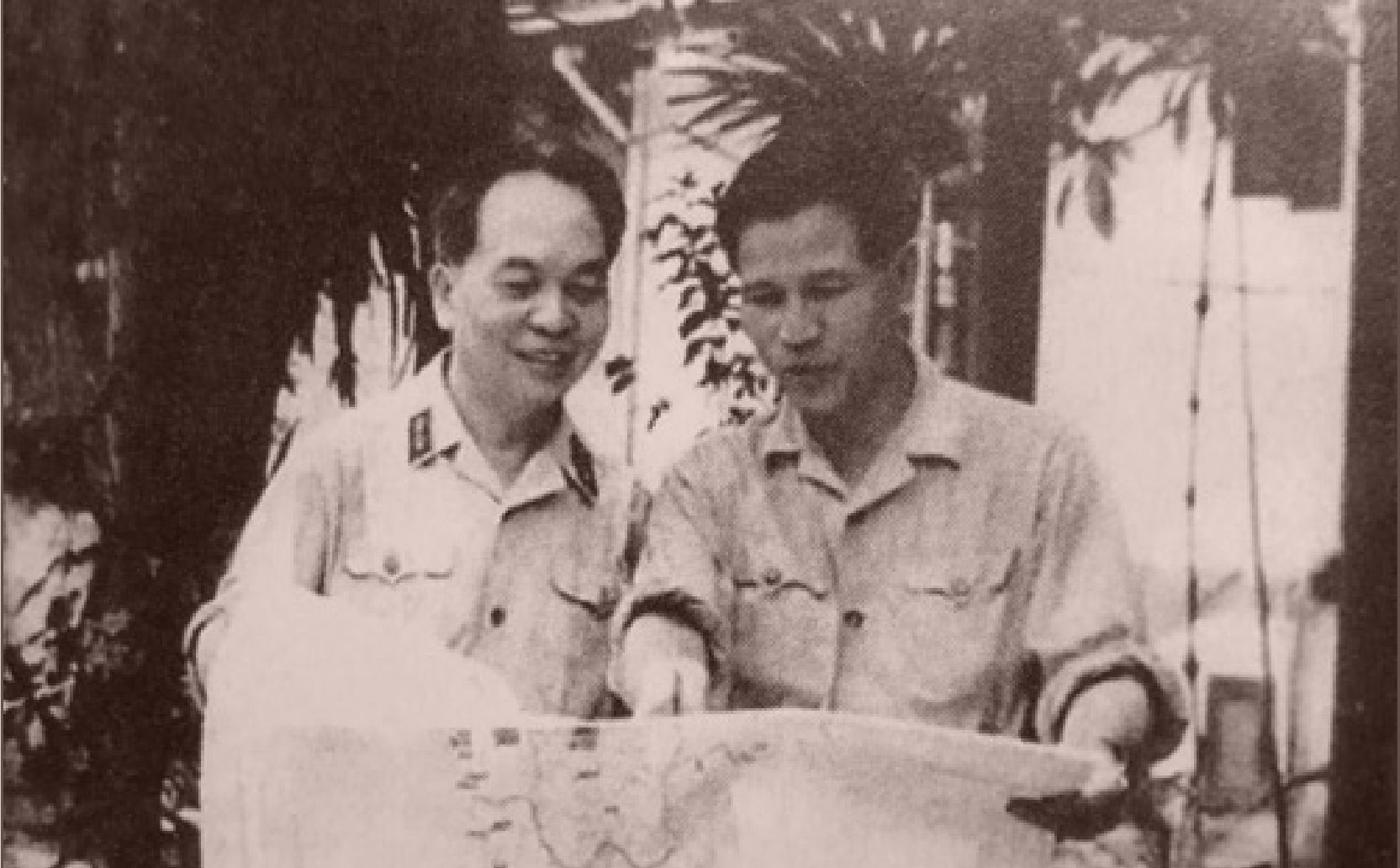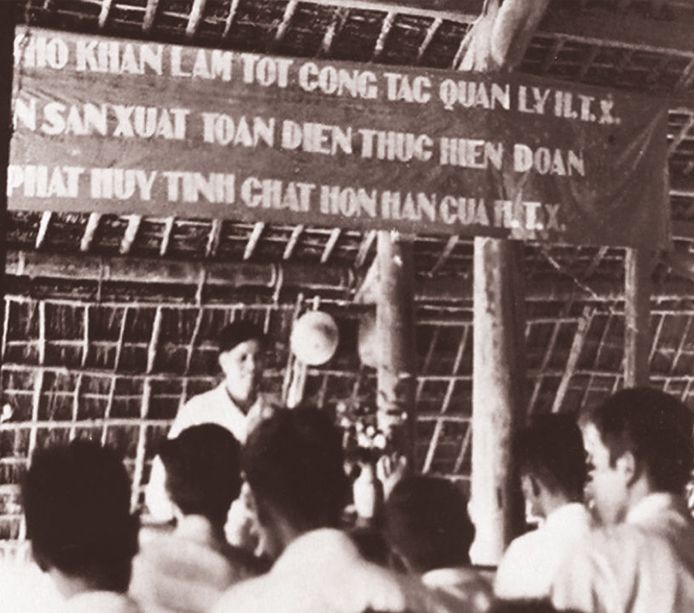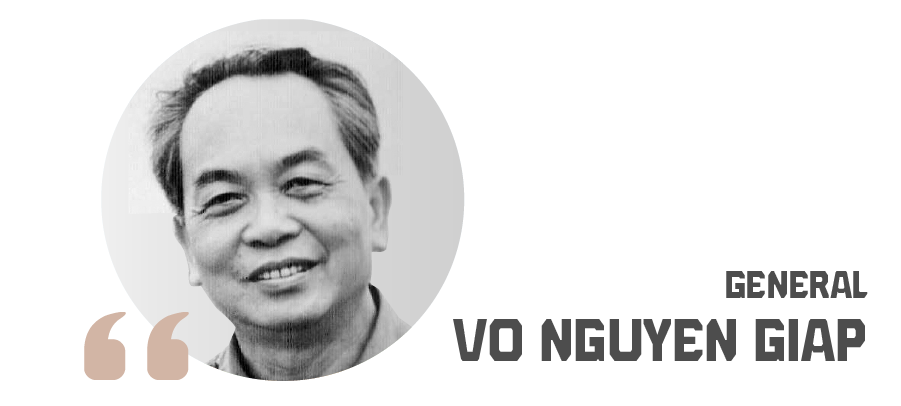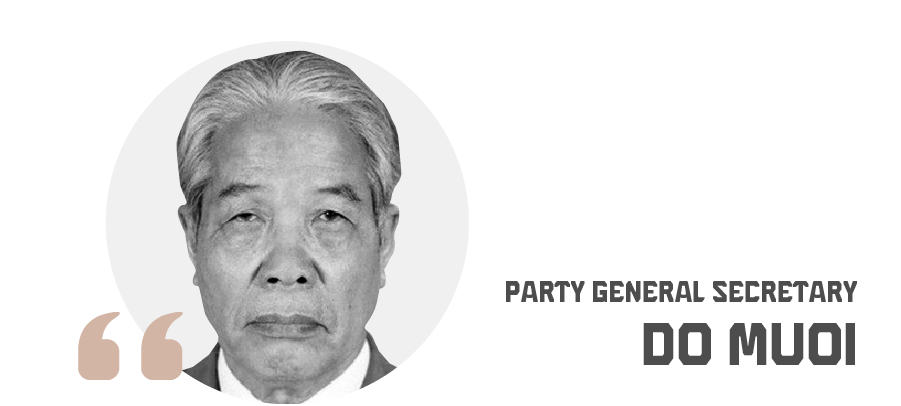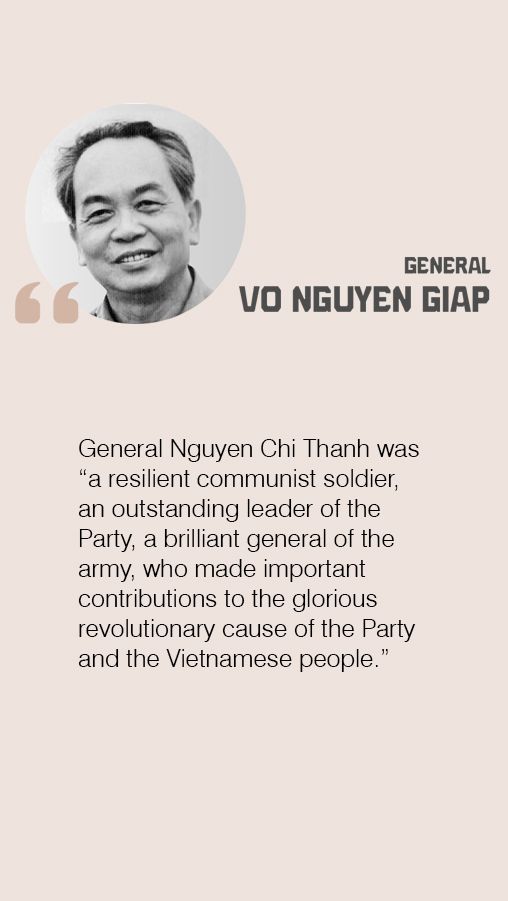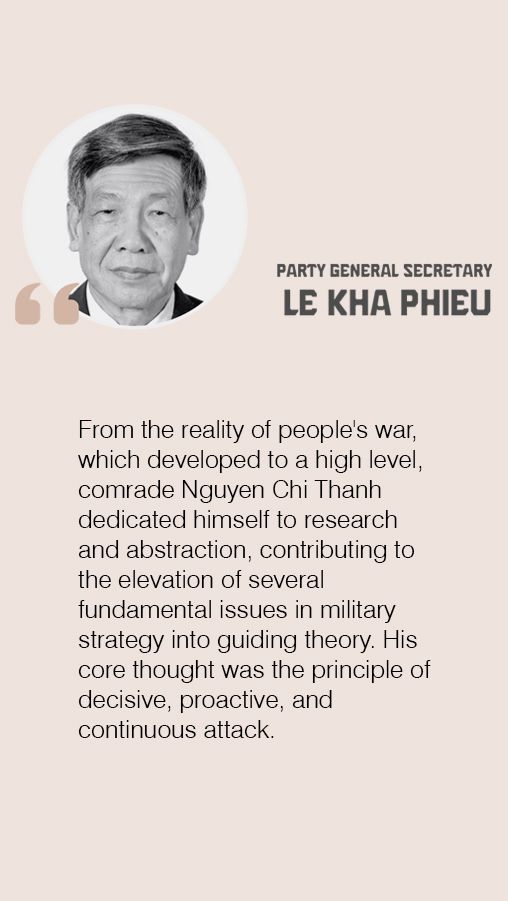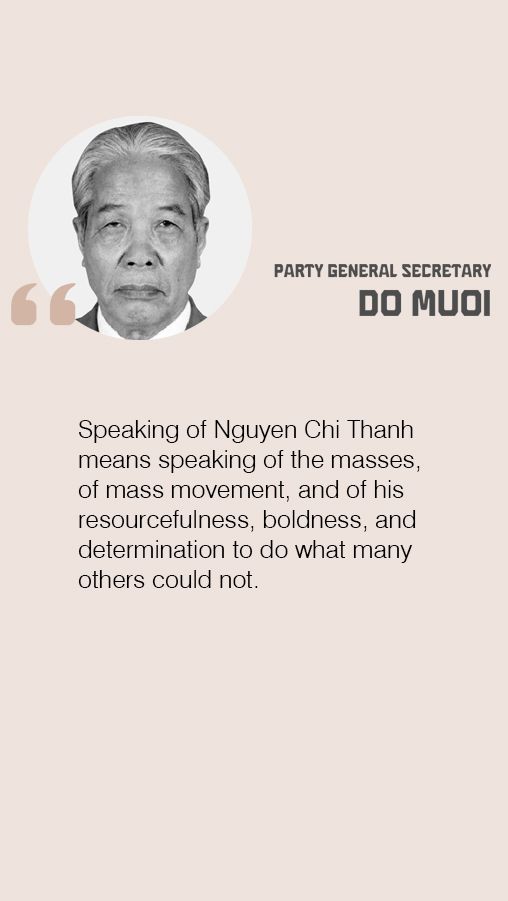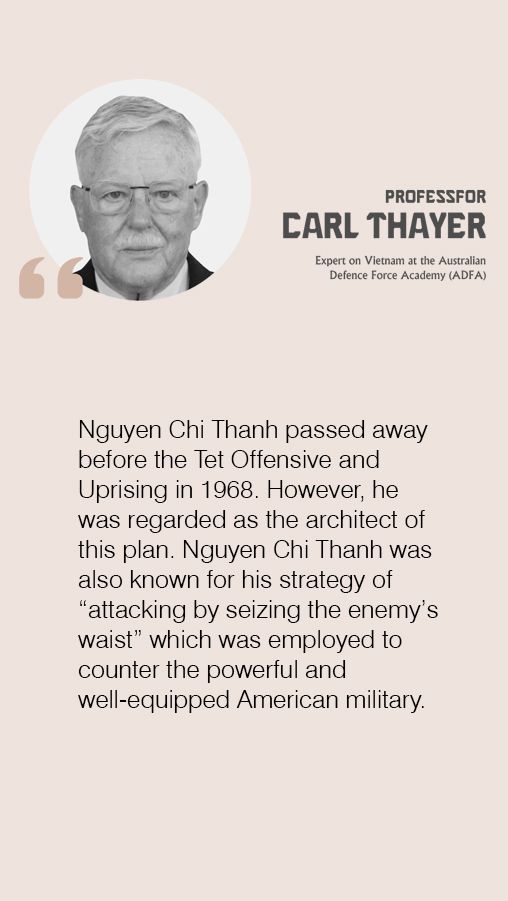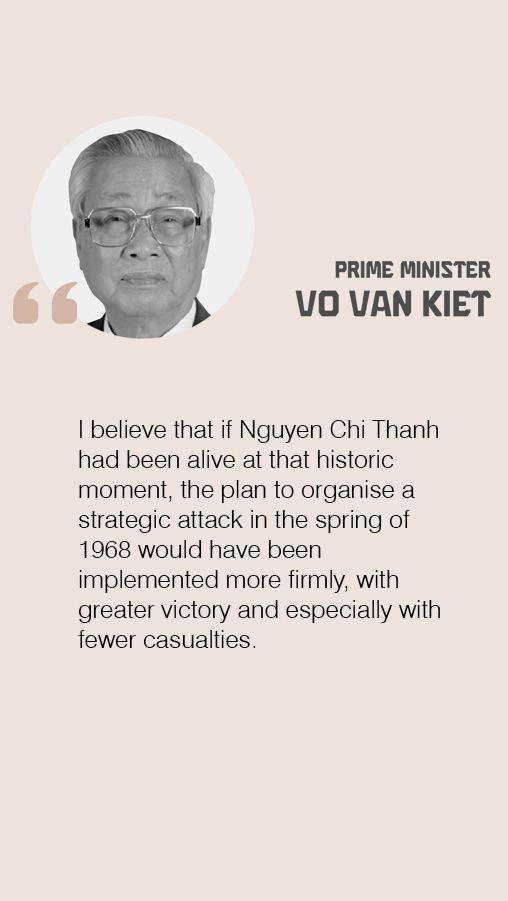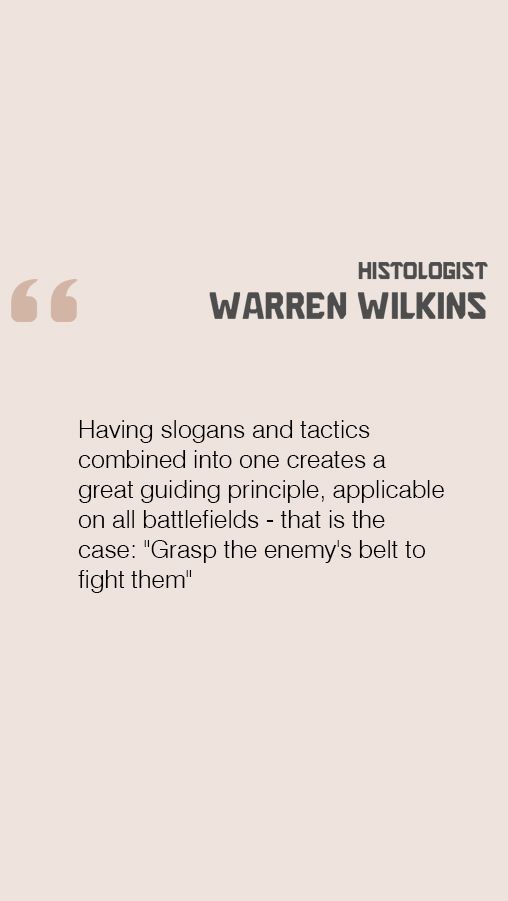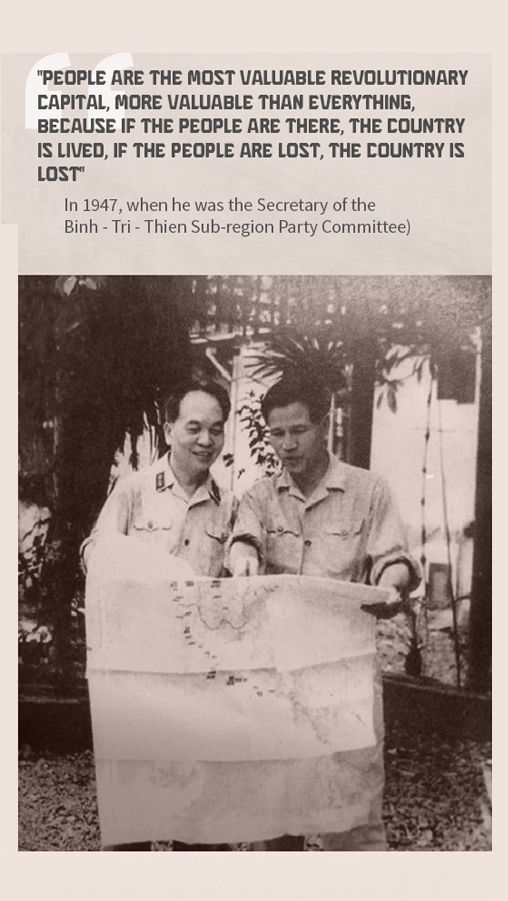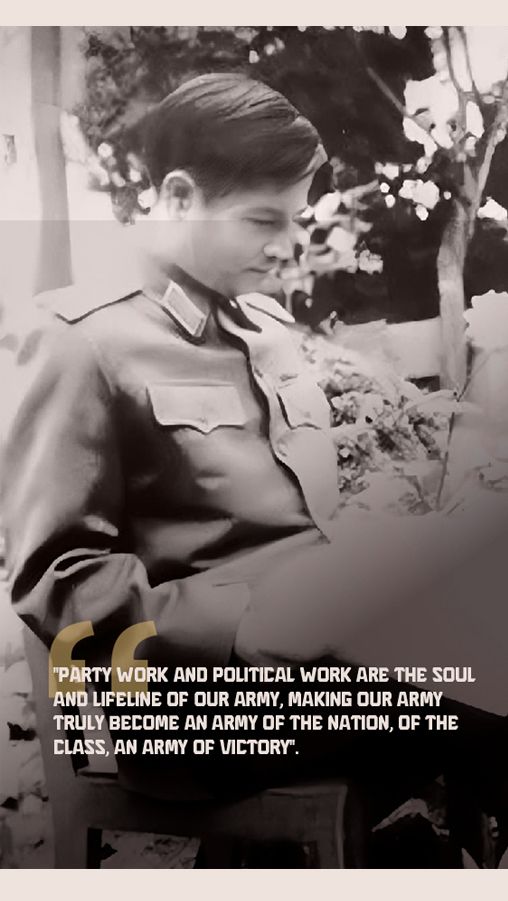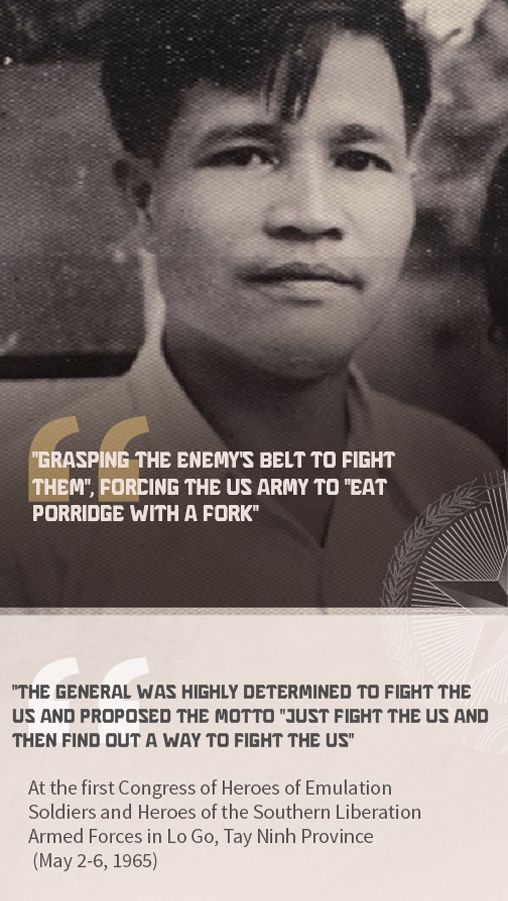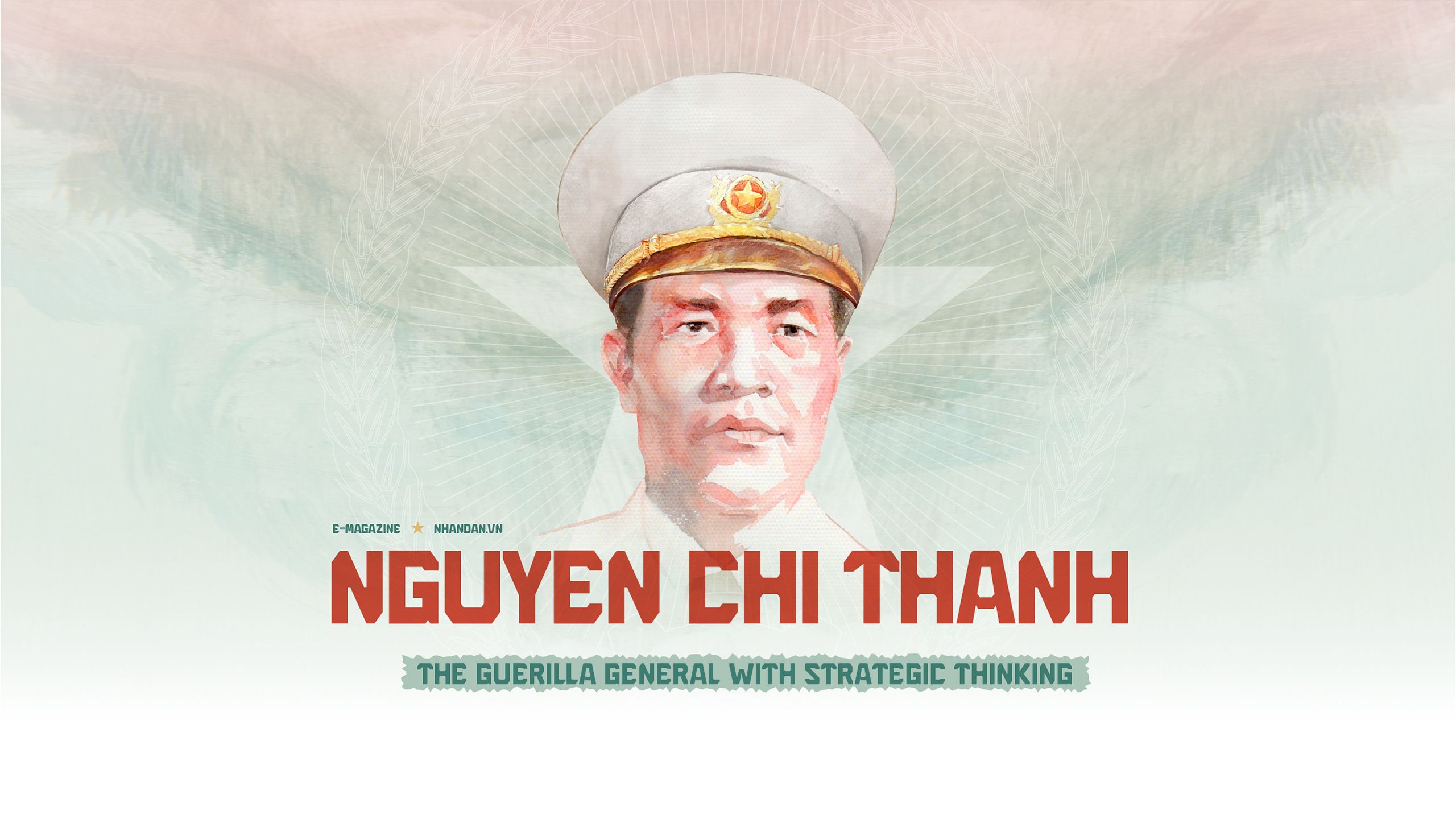
As an outstanding student of President Ho Chi Minh, a steadfast and exemplary communist soldier, and a distinguished son of the Vietnamese nation, with a practical approach and strategic thinking, General Nguyen Chi Thanh excellently fulfilled all tasks assigned by the Party, State, military and people. The General’s name is associated with pivotal moments in the Vietnamese revolution, especially his important contributions to building and strengthening the resolve to defeat the Americans.
Nguyen Chi Thanh, whose real name was Nguyen Vinh, was born into a poor farming family in Niem Pho Village, Quang Tho Commune, Quang Dien District, Thua Thien Hue Province, on January 1, 1914. From an early age, the young Nguyen Vinh demonstrated patriotism, strong determination, and the ability to unite and lead the masses in revolution. Nguyen Vinh was admitted to the Indochinese Communist Party, becoming the first Communist Party Secretary in his locality and later the Party Secretary of Thua Thien Province. He was arrested multiple times and held in various prisons including the Thua Phu (Hue), Lao Bao (Quang Tri), and Buon Ma Thuot (Dak Lak) prisons.

General Nguyen Chi Thanh in 1960
General Nguyen Chi Thanh in 1960
August 1945 marked an important turning point in Nguyen Vinh’s revolutionary life. He was selected to attend the National Congress in Tan Trao, where he had the honour of meeting President Ho Chi Minh, who gave him the name Nguyen Chi Thanh. From then on, Nguyen Chi Thanh made outstanding contributions in military, political, agricultural, and cultural fields, playing an important role in the victories against the French and Americans. Before the resistance against America had achieved decisive victory, General Nguyen Chi Thanh passed away after a sudden heart attack on July 6, 1967.
For his exceptionally distinguished contributions to the nation’s revolutionary cause, the Party and State awarded General Nguyen Chi Thanh with the Gold Star Order, first-class Ho Chi Minh Order, first-class Military Exploit Order, first-class Victory Order, and many other prestigious awards.
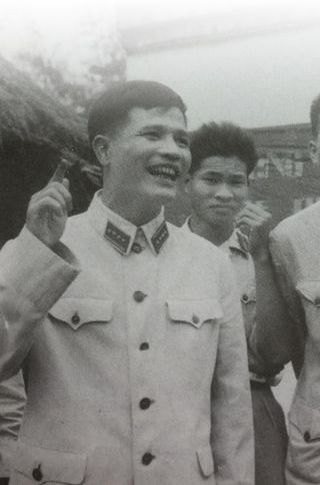
August 1945 marked an important turning point in Nguyen Vinh’s revolutionary life. He was selected to attend the National Congress in Tan Trao, where he had the honour of meeting President Ho Chi Minh, who gave him the name Nguyen Chi Thanh. From then on, Nguyen Chi Thanh made outstanding contributions in military, political, agricultural, and cultural fields, playing an important role in the victories against the French and Americans. Before the resistance against America had achieved decisive victory, General Nguyen Chi Thanh passed away after a sudden heart attack on July 6, 1967.
For his exceptionally distinguished contributions to the nation’s revolutionary cause, the Party and State awarded General Nguyen Chi Thanh with the Gold Star Order, first-class Ho Chi Minh Order, first-class Military Exploit Order, first-class Victory Order, and many other prestigious awards.
1. THE “GUERRILLA GENERAL” — THE SOUL OF THE BINH - TRI - THIEN BATTLEFIELD
In early 1947, amid the imminent collapse of the Hue front, when revolutionary forces suffering heavy losses and liberation zones were lost, a portion of the population experienced wavering morale and lack of confidence. Thua Thien Provincial Party Secretary Nguyen Chi Thanh calmly assessed the situation, identified limitations, and sought solutions to overcome difficulties. He was determined not to let the guns of resistance fall silent for long.
Under his leadership, cadres, party members and troops actively maintained their presence in the territory, stayed close to the people, and preserved their grassroots bases. This gradually created a new phase for the guerrilla warfare movement on the Thua Thien battlefield, with victories at Ho Thanh and Dat Do, helping to reinforce people’s faith and inspire their fighting spirit.
To unify the leadership and coordinate the actions of the army and people of the three provinces of Quang Binh, Quang Tri and Thua Thien, in June 1947, the Party Central Committee issued a directive to establish the Binh - Tri - Thien Sub-region and appointed Nguyen Chi Thanh as Secretary of the Sub-region Party Committee. With the viewpoint: "People are the most precious revolutionary capital, more precious than all. Because as long as the people exist, the country exists. “If the people are lost, the country is lost.” [1] He and the leaders and commanders of the Sub-region correctly assessed the situation, strengthened the direction of the entire Party Committee to stick with the people behind the enemy lines to build a guerrilla warfare movement, destroy the enemy, eliminate traitors, and improve people's lives. Thanks to that, after a period of temporary lull, the Binh - Tri - Thien battlefield quickly rose to become a typical example in the revolutionary struggle movement of the whole country.
In early 1948, the French colonialists increased their methods of destruction, sweeping, organising, and maintaining a system of suppression, causing serious damage to the revolutionary movement in the area of Inter-zone 4. To overcome the difficulties, the Party Central Committee decided to assign comrade Nguyen Chi Thanh to hold the position of Secretary of the Inter-zone Party Committee of Zone 4. With the experience accumulated in the process of leading the resistance movement in Thua Thien, Binh - Tri - Thien, in the years from 1948 to 1950, Nguyen Chi Thanh creatively applied the Party’s guidelines and policies, together with the Inter-zone Party Committee, continued to promote guerrilla warfare and people’s war, transforming “Binh - Tri - Thien in smoke and fire” into “uprising Binh - Tri - Thien” and becoming a vibrant battlefield with a strongly developing guerrilla warfare movement, contributing to dividing the fire, attracting and holding back the enemy, and creating a strategic position for the battlefield nationwide.
In recognition of those efforts and contributions, President Ho Chi Minh awarded the title of “Guerrilla General” to Nguyen Chi Thanh.
2. BUILDING A “POLITICS ARE MORE IMPORTANT THAN MILITARY” ARMY
To build a strong Army to meet the increasingly high demands of the resistance war against French colonialism, in 1950, Nguyen Chi Thanh was transferred to the army to hold the position of Chief of the General Political Department of the General Command, Deputy Secretary of the General Military Commission.
Implementing President Ho Chi Minh’s motto of building an army that is “politics is more important than military”, Nguyen Chi Thanh affirmed the most basic principle in building, fighting and growing the army: “From the army’s fighting purpose to the army’s organisation, discipline and tactics, all must obey the Party’s political line.”
In his role as Chairman of the General Department of Politics, Thanh made significant contributions to building the army in terms of politics and ideology, establishing a party organisation system, organising political work, and developing personnel while maintaining and strengthening the Party's leadership over the military. Under his direct guidance, party work and political activities in the army experienced new developments in both content and form, contributing to enhancing the combat strength of our people's armed forces.
To ensure the absolute and direct leadership of the Party in all aspects over the Army, Nguyen Chi Thanh and the General Military Commission focused on researching and perfecting the Party’s leadership mechanism over the army, proposing to replace the “ultimate political commissar decision” regime (applied since August 1949) with the regime of “Party committees leading the main force” and was officially approved by the Second National Congress of the Party in February 1951.
General Nguyen Chi Thanh directed the General Department of Politics to establish a political agency system and assign the role of political commissars down to the company level. He also established a general department on the front line to directly oversee party work and political activities on the battlefield.
Under the leadership of Chairman of the General Department of Politics Nguyen Chi Thanh, party work and political activities made significant progress, becoming the “soul and lifeblood” of the army. This development enhanced the effectiveness of party work and political activities, making them a crucial pillar that determined the overall strength of the Vietnam People’s Army.
For his outstanding contributions to the revolutionary cause of the nation and the development of the Vietnam People's Army, in August 1959, Nguyen Chi Thanh was promoted to the rank of General.
3. THE “PEASANT GENERAL” WHO BROUGHT NEW BREATH INTO THE AGRICULTURAL DEVELOPMENT MOVEMENT
In 1960, after Northern Vietnam completed the formation of agricultural cooperation, natural disasters and diseases led to poor rice harvests and low incomes, causing uncertainty among the people about whether to pursue a collective or individual farming model. Given the situation, at the end of 1960, President Ho Chi Minh appointed General Nguyen Chi Thanh as Head of the Central Committee for Rural Affairs to revive emulation movements and advance the operation of agricultural cooperatives. For the first time, a general who fought against foreign invaders shifted focus to combating hunger and illiteracy.
Taking on leadership of a vital economic sector, General Nguyen Chi Thanh closely engaged with farmers to understand their situations while humbly listening to scientists' opinions. Based on this understanding, he proposed new agricultural production measures such as intensive farming, applying scientific techniques, and maintaining and expanding cultivated areas, while also launching initiatives and emulation movements in agricultural production, which drove significant changes in rural economies and played a crucial role in strengthening Northern Vietnam's strategic rear to provide timely support to the Southern battlefield.
Although his involvement in the agricultural front was brief, comrade Nguyen Chi Thanh left a profound impression not only in his thinking and awareness but also in his revolutionary actions, building the movement, fighting the enemy, and production. The people affectionately called him “The Farmer General”.
4. “STICKING TO THE ENEMY’S WAIST AND FIGHTING”
ANSWER TO THE QUESTION “DO YOU DARE TO FIGHT THE US? HOW TO FIGHT THE US?"
At the beginning of 1965, the Party Central Committee and the Politburo decided to assign General Nguyen Chi Thanh to the South, taking on the position of Secretary of the Central Office for South Vietnam and Political Commissar of the Liberation Armed Forces for South Vietnam, directly leading the resistance war against the US for national salvation.
Shifting from the strategy of “Special War” to “Local War”, the US imperialists sent their expeditionary forces and allied troops in large numbers to the South. The new target of combat was the US expeditionary army, equipped with modern weapons and equipment, which created a “fear of the US” in a section of the South’s military and people. Faced with this situation, General Nguyen Chi Thanh affirmed that our army and people had enough strength through people’s war to “not fear the US, dare to fight the US, and decisively defeat the US”.
Comrade Nguyen Chi Thanh, along with the Central Office for South Vietnam, the Military Commission, and the Southern Command, focused on leading and directing the construction of “main force punches”, organising solid people’s war strategy, combining guerrilla tactics with regular military operations, launching decisive blows and winning resounding victories in Nui Thanh (May 1965) and Van Tuong (August 1965), followed by the battles in Plei Me - Ia Drang (October - November 1965), and Dat Cuoc, Bau Bang (November 1965), igniting the determination and spirit of “fighting the US, defeating the US” in the army and people of the South.
From the rich combat experience of units and localities across the South, with sharp and dialectical thinking, General Nguyen Chi Thanh summarised the distinctive combat tactics of the Vietnamese People’s Army, which also became the famous revolutionary slogan: “Stick to the enemy’s waist and fight”. From the methods of “fighting up close”, “dividing the enemy to fight”, and “fighting the US right at their bases”, numerous “US destruction belts” appeared near US military bases across the battlefields, such as Hoa Vang, Chu Lai (Military Region 5), An Khe, Pleiku (Central Highlands), and Cu Chi, Ben Cat (Southeast Region), encircling, exhausting, and destroying US troops.
The continuous resounding victories of the army and people of the South in operations defeating two US strategic counter-offensives during the dry seasons (1965-1966) and (1966-1967) further confirmed that the new combat methods were completely appropriate, highly effective and laid a solid foundation to defeat the US “Local war” strategy.
General Nguyen Chi Thanh listens to battlefield report at the Southern Command in 1966
General Nguyen Chi Thanh listens to battlefield report at the Southern Command in 1966
During the more than 30 years of his revolutionary career, General Nguyen Chi Thanh was present in the most difficult and challenging places. He dedicated his life to the ideals of the Party and served the cause of national liberation. He demonstrated the qualities of a talented and strategic general of the Vietnam People's Army: an exemplary leader with great resolve and courage, and a shining example of a communist. The valuable legacies of Nguyen Chi Thanh, which contain profound theoretical and practical values, continue to be studied and creatively applied in the decisive stage of the resistance war against the US as well as in the cause of building the army and strengthening national protection and defence in the new era.
General Nguyen Chi Thanh's outstanding contributions were acknowledged by the Party Central Committee: “Comrade Nguyen Chi Thanh made a significant contribution to strengthening the Party's leadership over the army: building the army in terms of politics, ideology, and organisation, nurturing and promoting the revolutionary nature of our army, establishing a solid political work foundation, and rapidly enhancing the combat strength of the people's armed forces. He also consistently cared for the education and training of a strong cadre team, meeting the growing demands of the revolutionary tasks.”
General Nguyen Chi Thanh was “a resilient communist soldier, an outstanding leader of the Party, a brilliant general of the army, who made important contributions to the glorious revolutionary cause of the Party and the Vietnamese people.”
Nguyen Chi Thanh passed away before the Tet Offensive and Uprising in 1968. However, he was regarded as the architect of this plan. Nguyen Chi Thanh was also known for his strategy of “attacking by seizing the enemy’s waist” which was employed to counter the powerful and well-equipped American military.
From the reality of people's war, which developed to a high level, comrade Nguyen Chi Thanh dedicated himself to research and abstraction, contributing to the elevation of several fundamental issues in military strategy into guiding theory. His core thought was the principle of decisive, proactive, and continuous attack.
I believe that if Nguyen Chi Thanh had been alive at that historic moment, the plan to organise a strategic attack in the spring of 1968 would have been implemented more firmly, with greater victory and especially with fewer casualties.
Speaking of Nguyen Chi Thanh means speaking of the masses, of mass movement, and of his resourcefulness, boldness, and determination to do what many others could not.
Having slogans and tactics combined into one creates a great guiding principle, applicable on all battlefields - that is the case: "Grasp the enemy's belt to fight them"
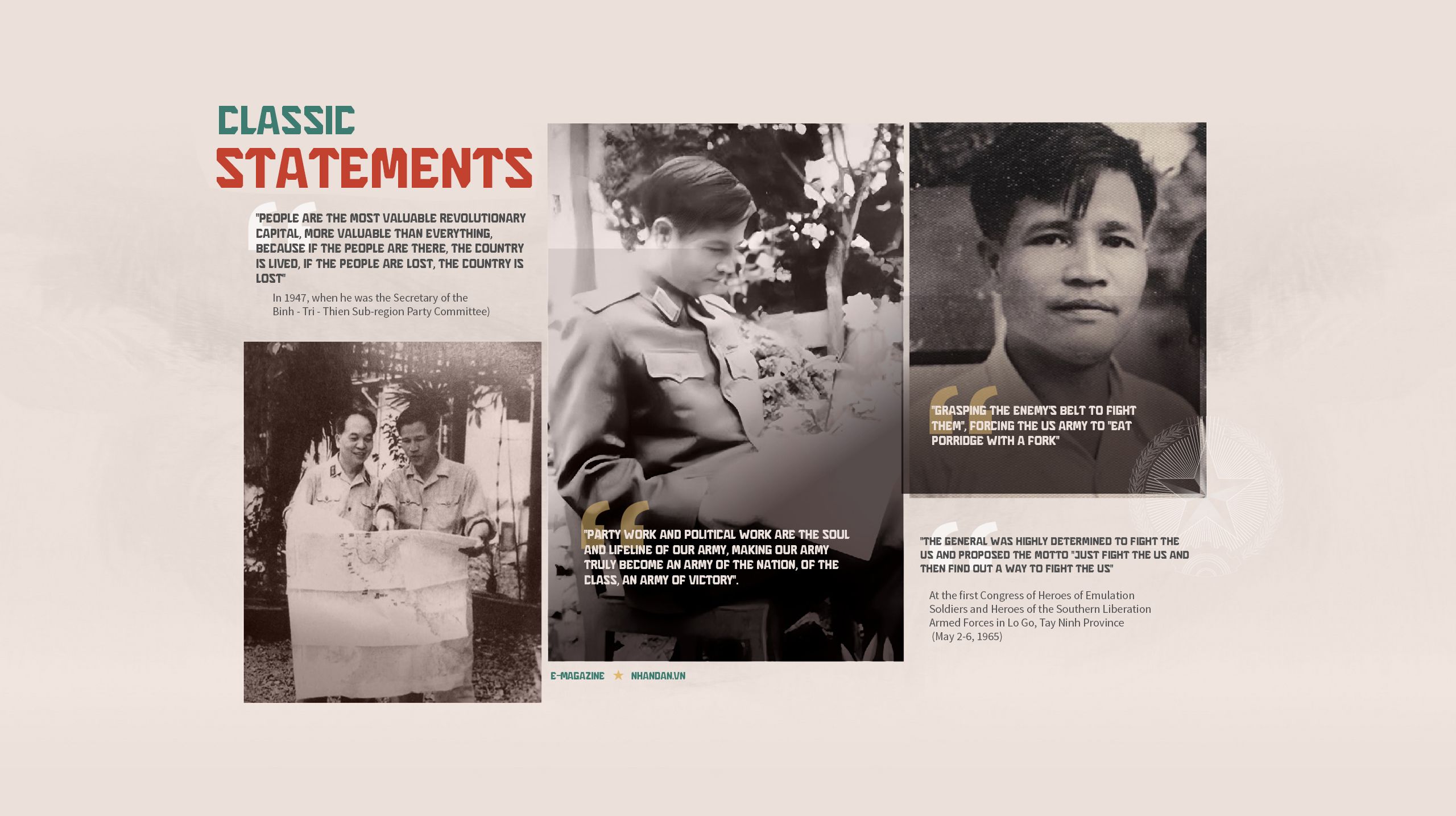
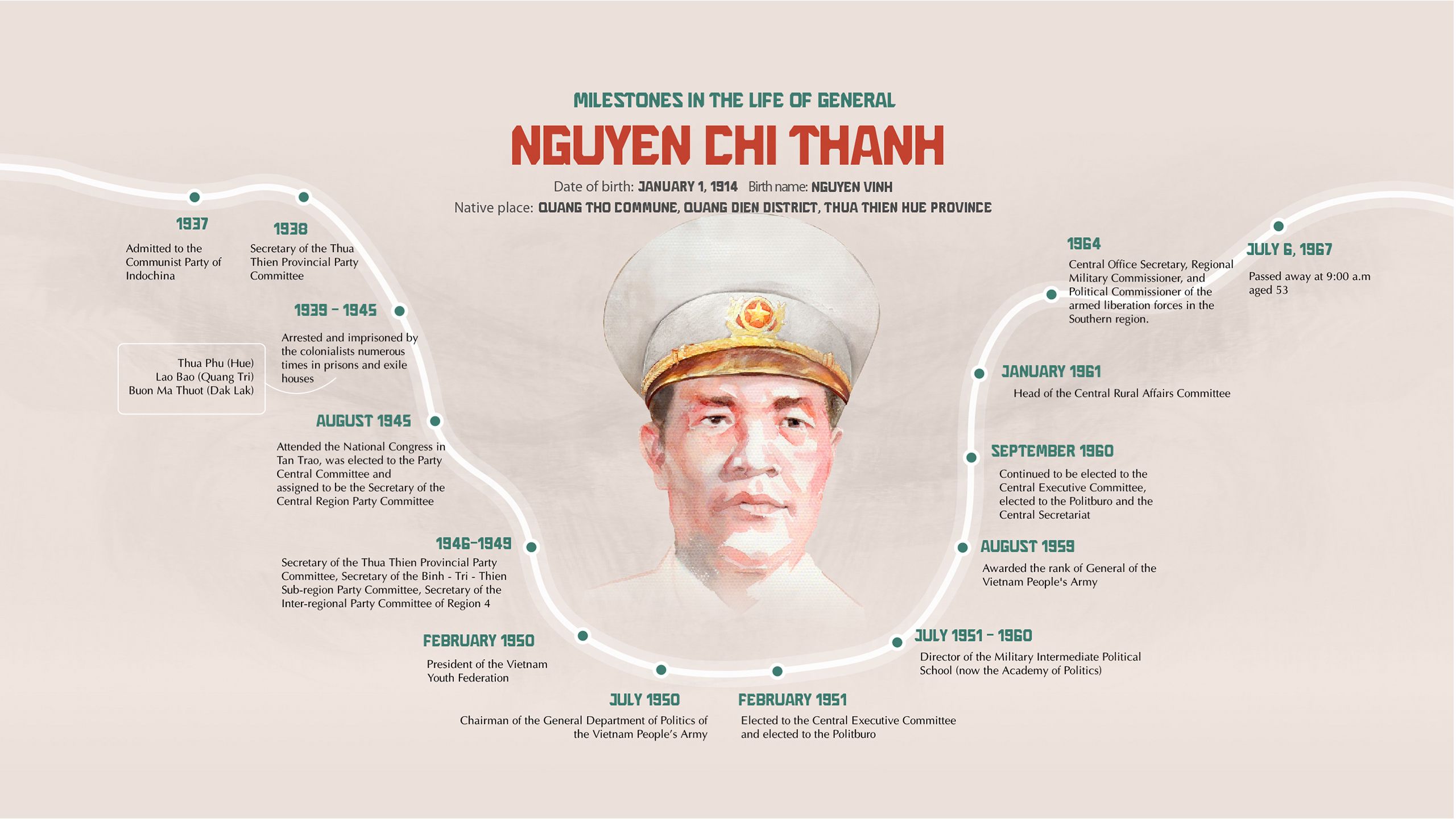
Published: December 2024
Content: Major, Master Le Minh Nam, Institute of Military History
Translation: NDO
Illustration: Artist Hoang Tuong
Photos: People's Army Newspaper; VNA
Design: Ta Lu - Pham Son






